Very few fictional creatures divide opinion quite like the Rabbids. Some compare them to Minions, with their obnoxious voices and endless energy whilst others praise the overall character and joy inherent to the creatures. They’re Ubisoft’s answer to Marmite. Personally, I’ve always found them to be more endearing than annoying – even if I generally prefer the series they originated from – Rayman. Regardless, the Rabbids keep popping back up in different forms, and last year Rabbids: Party of Legends released exclusively in China. Originally, if you wanted to take a look at this title you needed a Chinese Tencent Nintendo Switch – but no longer! The big question however is if it deserved to cross the pond or if it would have been better for only one country to have to endure it.
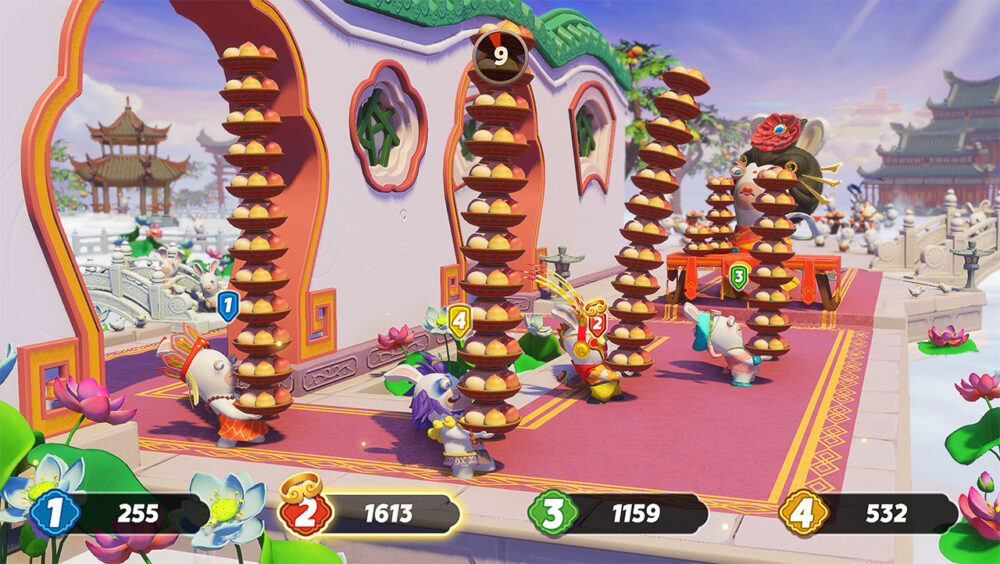
In Party of Legends, the Rabbids travel through time and space and find themselves in the world of the legendary Chinese novel (and arguably the most popular work of East-Asian literary fiction,) Journey to the West. The novel details the journey of the Buddhist monk Xuanzang’s pilgrimage to the west, but fictionalises it by adding various elements of Chinese folk religion, Taoism, mythology and Buddhist theology. The main character Sun Wukong (the supernatural Monkey King,) fights various magical creatures and undertakes a number of trials set before him by Buddha throughout the story, before finally ascending to Buddhahood himself. The novel itself has inspired a huge number of things over the years, with two notable examples being the character of Goku from Dragonball and the Pokémon Infernape. Party of Legends, however, takes the central characters and plonks them into a Mario Party-esque party pack with a short single-player story and “50” minigames, each tentatively linked to the trials of Sun Wukong and his friends.
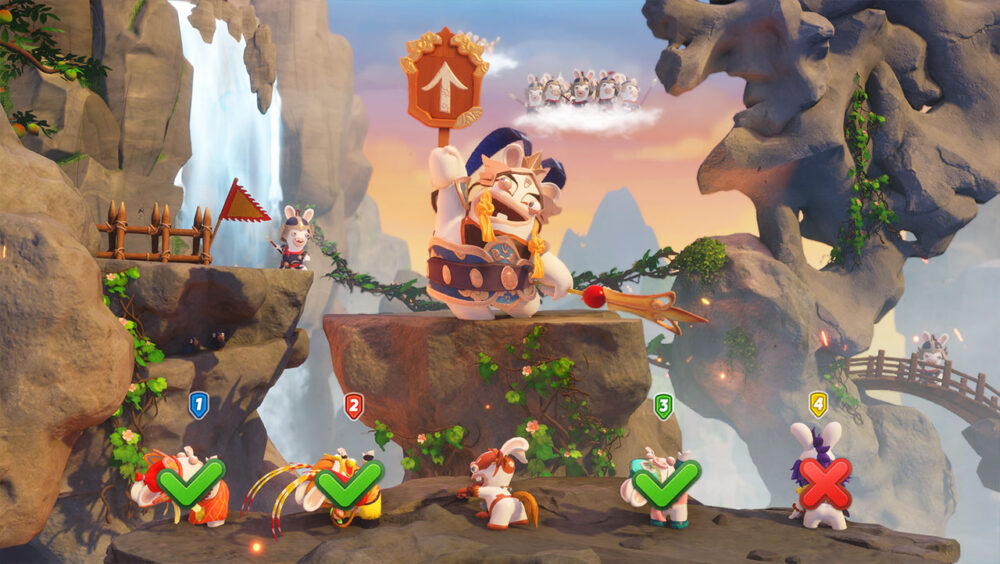
The single player portion attempts to tell the story to the best of its ability, tying together nicely-illustrated cut-scenes and text explanations of the general plot with short mini-games. It doesn’t do an entirely terrible job of doing so either, even if some of the bigger deviations feel a little un-necessary. Children playing to get a general gist of the tale would likely understand the key points, and it’s an interesting theme to play around with. Unfortunately, I didn’t find the gameplay component to the particularly compelling for the duration, despite it only lasting up to three hours in total. I think the intention is for it to be replayed with friends through the optional multiplayer mode, but even so I’m glad to see somewhat of a single-player component in what would otherwise simply be a mini-game collection. The most compelling draw to this mode is the book-collection system, which follows the star-collection formula seen in similar titles. Obviously the player with the most at the end “wins” and you can earn them from mini-games, but now and then, you are asked to make a choice on how to approach a story-point, with a wheel determining how successfully your decision resolves. These were often amusing and well-written, so I’ll give them credit for that.
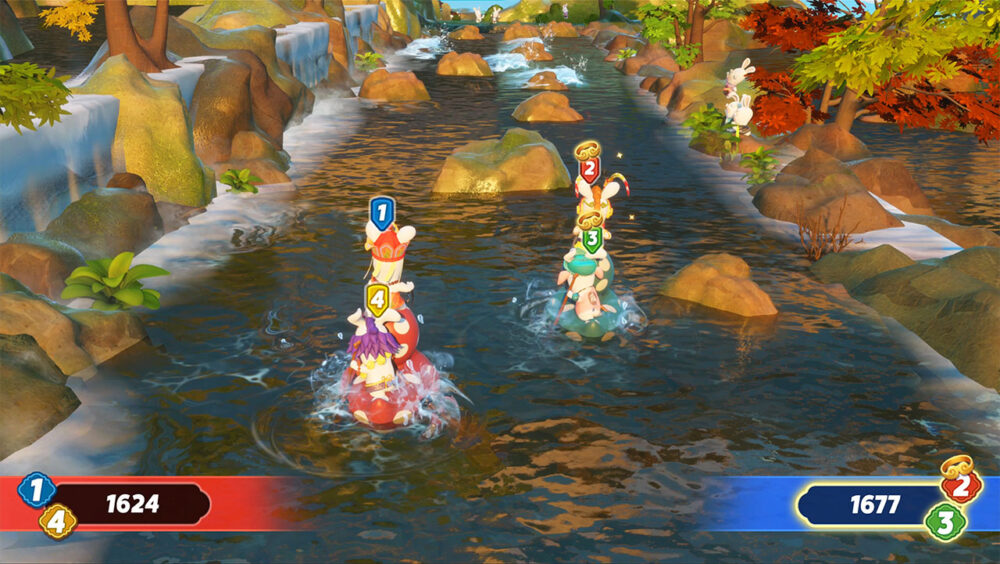
The mini-games themselves are alright, I suppose. The “50”-odd minigames are all nicely made with mostly workable controls and a short-enough play time that you can rattle through them quickly. I particularly liked the rhythm-action and ball-wafting ones, although it’s here that we come to an issue. The game advertises 50 mini-games but I can’t help but feel it’s a disingenuous number. You only have access to 30 at the start – with the rest unlocked through a strange battle-pass system – and many of them are simply repeats of the same gameplay elements with a different coat of paint. The brilliant rhythm-action game, for example, is repeated five times but with different moves, music and environments. In total, there are far fewer individual games here than 50 and this doesn’t help with the repetitiveness overall. There are also some inconsistencies with the quality, with certain games feeling distinctly less polished and enjoyable than others. For one, the “shooting” games control very poorly and often end up with a random result despite any attempts at aiming your cursor with the gyro controls. What results is a real mixed bag, with some mini-games bringing me dread and others filling me with happiness.
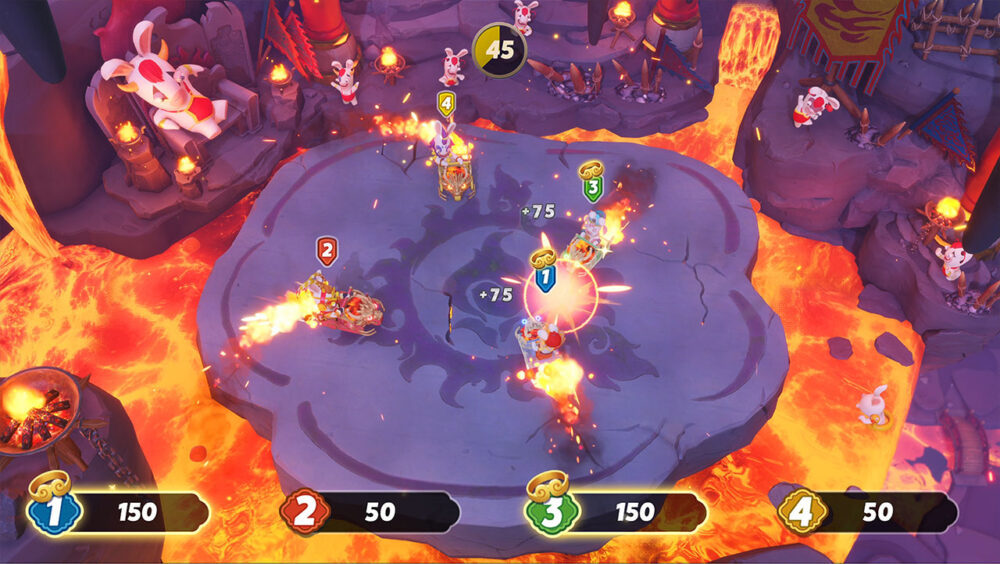
It’s likely that most people will spend the majority of their playtime in local multiplayer – there isn’t an online option after all – but even here it just feels lesser than other similar titles. Outside of the adventure mode, you choose your game length and characters and then simply play games one after another – no map, no events, just minigames. It’s ok for short sessions of two or three games, but it just doesn’t have the longevity I would have hoped for.
Ubisoft has however planned for that, with a strange levelling element – thematically and mechanically similar to a battle-pass but without a time constraint – encouraging repeated play. As you earn books in various modes you gain access to new games and characters for the playlist mode, but I didn’t really feel inclined to put time into grinding it out. Granted, the new characters are fun to unlock, but most of the unlockable mini-games are simple reskins and as such didn’t feel worth the effort. It’s a really strange system to put into this and it just doesn’t feel appropriate for the style of game. If you want unlockable characters, great, but don’t put mini-games behind a strangely-long play-gate because unfortunately I don’t really want to play the same game over and over just to unlock another version of it.
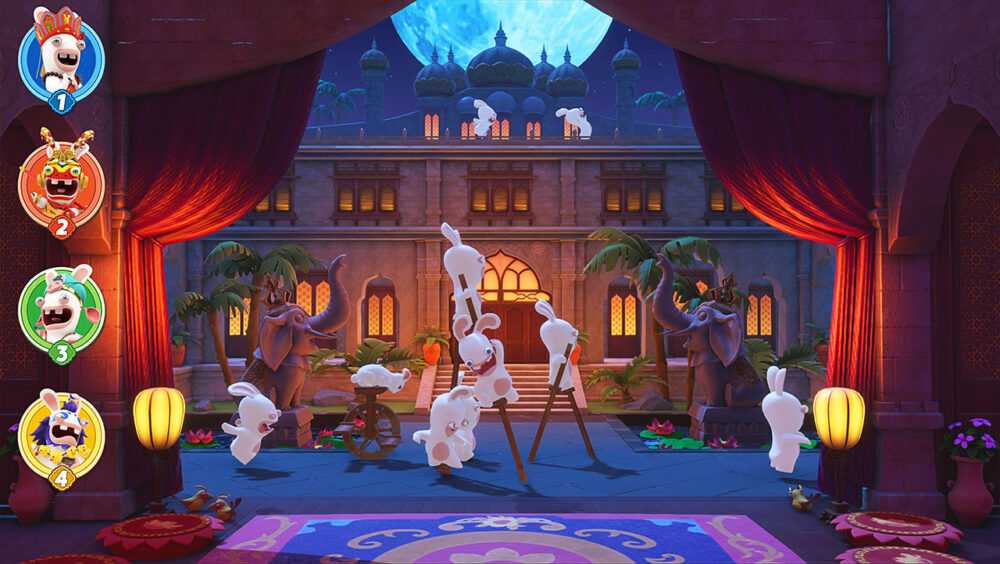
At least the number of characters makes up for my other issues. There are 45 in total with most being distinct from the others. Granted, there are some colour-swaps and variations on duplicate characters but I did enjoy seeing how they interpreted each one. Most of them are really well thought out, although there were a few that just felt disrespectful to the source material. Sun Wukong – the Monkey King – is possibly the worst, as for some reason he was designed to be a head-phoned DJ with an obnoxious need to constantly beat-box, and considering I kind of felt that I SHOULD be playing as the main character of the tale I never really wanted to endure his horrific characterisation.
Thankfully at least the game feels very polished graphically and aurally. Visuals are lovely throughout and the score of East-Asian-inspired music sets the tone well. No complaints here on performance either – it runs really well with no stuttering.
Overall then, I found Party of Legends to be a bit of an underwhelming title. There is so much potential here but numerous strange design choices have just left the game feeling flat. It has a distinct identity in its theming and presentation, but with few original mini-game ideas and a relatively short number of play experiences I can’t help but feel that a trick has been missed. After my time with it I did want to play more mini-games, but in a different, better package, and at a price of £34.99 on the eshop I can’t really recommend picking it up. Maybe fans of Chinese folklore or the Rabbids could find some value here, and I did have fun at times, but if you’re interested you’d be better to wait until the price drops significantly.
Grab you copy here https://www.nintendo.co.uk/Games/Nintendo-Switch-games/Rabbids-Party-of-Legends-2212470.html#Overview
Enjoy the review? want to read more of our reviews? then click right here to be whisked away to the realm of our opinions.

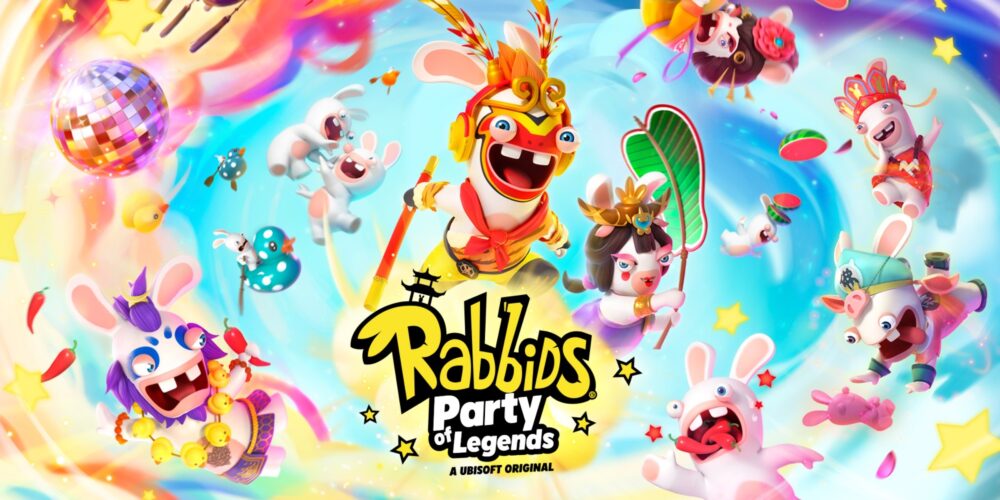






You must be logged in to post a comment.